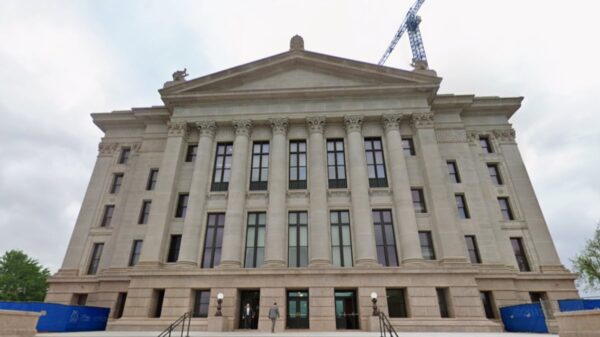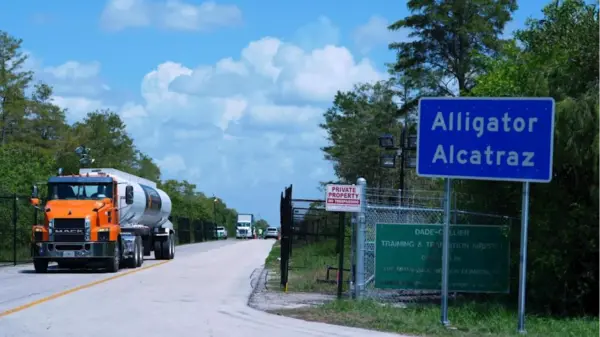URGENT UPDATE: New reports confirm that the United States could witness an unprecedented exodus of over 500,000 people this year, driven by President Donald Trump’s controversial immigration policies. The American Enterprise Institute (AEI) estimates net migration could fall to between -525,000 and 115,000, marking a dramatic shift from nearly 1.3 million in 2024 and 330,000 during the COVID-19 pandemic in 2020.
This alarming trend highlights serious implications for the U.S. economy, as a significant portion of the American labor force consists of foreign-born workers—approximately 19.2 percent, according to the Department of Labor. Experts warn that a decline in immigrant workers could lead to a 0.4 percent reduction in GDP this year, compounding fears of economic instability.
In a paper released by AEI, researchers noted that the current immigration climate reflects “a dramatic decrease in inflows and somewhat higher outflows,” raising concerns among economists and policymakers alike. Madeline Zavodny, an author of a related study from the Federal Reserve Bank of Dallas, stated, “The drop in migrant inflows will have adverse effects on growth in the U.S. labor force, spilling over into almost every sector of the economy.”
The impact will be felt most acutely in labor-intensive industries such as construction, agriculture, and hospitality, where American-born workers are less likely to fill these gaps. Giovanni Peri, a labor economist at the University of California, Davis, warned that job vacancies in these sectors could lead to rising prices, straining consumers and businesses alike.
The economic repercussions extend beyond job losses. The American Immigration Council estimates that the foreign-born population contributes approximately $1.7 trillion in spending power, with undocumented immigrants alone contributing $299 billion. A decline in this demographic could trigger a downturn in consumer spending, further exacerbating economic challenges as businesses face reduced revenues and potential layoffs.
Despite the dire forecast, the White House remains steadfast in its approach. Spokeswoman Abigail Jackson asserted, “President Trump’s agenda to deport criminal illegal aliens will improve Americans’ quality of life.” However, experts like Stan Veuger of AEI expressed skepticism about the administration’s willingness to reconsider its immigration policies. “I think the people driving immigration policy in the White House do not care about the economic or humanitarian impact of their immigration policies,” he said.
As the situation develops, attention will turn to how these potential changes in immigration patterns will affect local economies and essential sectors across the nation. With deportations already underway and a GOP reconciliation bill providing $150 billion for enforcement, the urgency for businesses and communities to prepare for the fallout is critical.
Stay tuned for updates as this situation continues to evolve, impacting millions across the United States and beyond.






































































